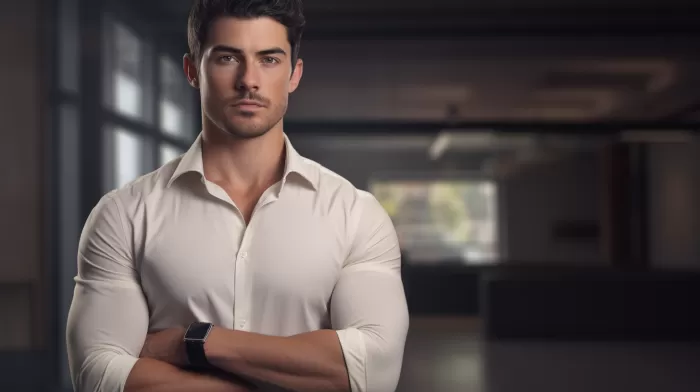Body language not only influences the way others perceive us, but it also plays a crucial role in how we see ourselves, and ultimately on our body’s hormone levels. One particular hormone that is affected by our posture is testosterone, which is related to confidence, dominance, and stress.
According to Dr. Amy Cuddy’s experiments, adopting a “power posture” for just two minutes can lead to a 20% increase in testosterone and a 25% reduction in cortisol, the stress hormone. Conversely, staying in what she calls a “repressed posture” can have the opposite effect. It’s worth noting that if someone who usually slouches were to switch to a power pose, they could potentially see a remarkable 40% boost in their testosterone levels.
Power poses and repressed postures
Power poses usually involve standing tall, with your chest out and hands on hips, mimicking a superhero stance; leaning back on a chair with hands resting behind your head like a relaxed CEO; or raising your arms overhead, as if you’ve just crossed the finish line of a race. Repressed postures, on the other hand, involve curled-in positions that make a person appear smaller or submissive, like sitting hunched over a desk during a test.
It’s interesting to note that in a work environment, people in leadership roles typically display dominant postures, while those in lower status positions adopt more repressed ones. It seems we instinctively adjust our body language based on our perceived social rank.
This persistent reinforcement of one’s social status, however, can directly impact our feelings of power and stress levels. By continuously sending ourselves the message that we are powerless and stressed-out, we’re actually perpetuating that belief, which then reflects in our hormonal profile.
Fake it till you make it
Fortunately, Dr. Cuddy’s research suggests that we can change this dynamic. When feeling stressed or powerless, consciously adopt a power pose, like the superhero stance, for a couple of minutes. Doing this will help you feel more confident and in control. If you’re concerned about looking foolish, just find a private space to practice your power pose. The change in your attitude may be noticed by your boss, who might reward your newfound confidence with more opportunities.
According to Dr. Cuddy, power postures do more than just make you appear confident. She states that “when people feel more personally powerful, they become more present,” which means they become more in tune with their thoughts and emotions, as well as those of others. This enhanced presence, characterized by enthusiasm, confidence, and engagement, enables one to captivate an audience and perform better in various aspects of life.
To sum it up, practicing power poses can help you achieve the confidence and self-assurance you desire, and may even lead to better life opportunities. So why not give it a try, and see the difference it can make in your daily life?
For more information on this topic, Harvard Business Review provides an insightful article about body language, power, and influence. Additionally, Healthline offers a comprehensive guide on power posing techniques and their benefits.



